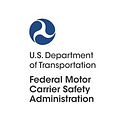With kids out of school, warm weather and more daylight, it’s not surprising that summer is peak moving season. Those advantages make it more likely that millions of Americans making household moves this summer may risk being victims of moving scams.
The Federal Motor Carrier Safety Administration (FMCSA) has a team of federal investigators working to crack down on fraudulent household goods movers and brokers. As these safety investigators work to protect American consumers, they uncover astonishing moving fraud scams.
An Investigator’s Most Memorable Case
One safety investigator discovered a paroled convict who accumulated multiple U.S. Department of Transportation numbers to operate as an interlining agent. The individual would pick up household goods from carriers and transport those goods to a storage facility owned by a family member.
The individual would unload these household goods at the storage facility, inventory them, and then sell them. An FMCSA investigation exposed this moving fraud, which ultimately landed the individual back in prison with additional charges related to the moving scam. At the time of his arrest, 80 percent of the public storage facility was filled with stolen household goods.
Frequently Seen Moving Scams
While that was an investigator’s most memorable case, it is just one example of a common scam that moving fraud investigations have uncovered. The scam involves carriers that store household goods during transit and steal a few items of value while those goods are in storage.
An example is a “missing” television that may cost as much as $3,000 at purchase, stolen by the carrier in transit. The released value of 60 cents a pound established by the Surface Transportation Board provides limited coverage for items that are lost or damaged. Thus, for a television weighing 40 pounds, the carrier is only responsible for paying out $24. The carrier could then sell the stolen television at a much higher price for a profit.
Other moving scams involve holding household goods hostage and forcing an individual to pay additional fees to release those goods. FMCSA investigators have seen everything from necessary medical equipment to sentimental family items held hostage.
FMCSA Enforcement Actions
Unfortunately, moving scams have become more common over the past several years. That’s why FMCSA continued Operation Protect Your Move this year. Operation Protect Your Move is an enforcement and education initiative to tackle the issue of scam household goods movers and brokers.
Operation Protect Your Move, first launched in 2023, resulted in the discovery of over 1,000 violations of FMCSA regulations and focused on addressing consumer complaints. This year’s operation targeted movers and brokers across the country with the highest number of consumer complaints.
What to Do If Moving Companies Steal Your Stuff
The first step is to try resolving any dispute with the moving company or broker. Check to see if you have coverage. Under federal law, interstate movers must offer two different liability options, referred to as valuation coverage — full value protection and released value. You may also be insured under your renter’s or homeowner’s policy.
If you’ve been a victim of moving fraud, you can file a complaint with the Better Business Bureau and state or federal authorities. For interstate moves (from one state to another state), file a complaint with FMCSA through the agency’s National Consumer Complaint Database. For intrastate moves (within a state) contact the appropriate state agency.
How to Protect Your Move
FMCSA’s Protect Your Move national outreach and education campaign raises awareness of household goods moving scams during peak moving season and throughout the year. The campaign includes free resources to help consumers know their rights, plan their moves and get tips to avoid moving company scams. If you or someone you know is planning a move, be sure to visit ProtectYourMove.gov.
